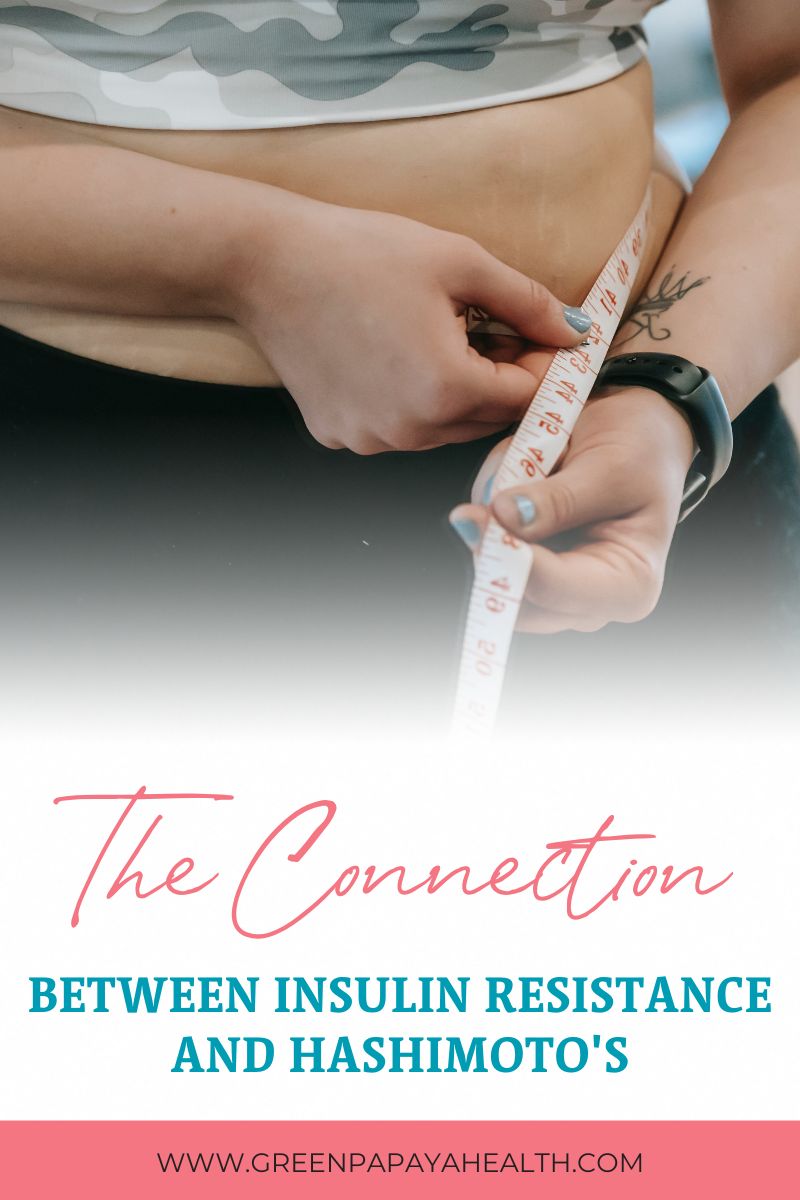Insulin resistance is a type of blood sugar condition that occurs when the body becomes less responsive to insulin, a pancreatic hormone. This incredibly important hormone is responsible for regulating blood sugar — a major fuel source for the body — and certain hormonal disorders, medications, and lifestyle factors can impair the body’s ability to regulate blood glucose levels. When this happens, the pancreas produces more insulin than it should — a condition known as hyperinsulinemia.
As a result, high blood sugar (hyperglycemia) may occur. This can eventually lead to prediabetes; type 2 diabetes; cardiovascular disease; stroke; Alzheimer’s disease; and cancers of the pancreas, colon, bladder, uterus, cervix, and prostate. This is pretty terrifying considering how “silent” insulin resistance can be!
While certain tests and measurements may point to insulin resistance (also known as reduced insulin sensitivity), few people know they’re at risk for the condition until they develop symptoms of high blood sugar or prediabetes. These symptoms often include increased thirst and hunger, blurred vision, and headaches.
If you’ve been diagnosed with Hashimoto’s thyroiditis or hypothyroidism, insulin resistance should definitely be on your radar! Though it’s possible for anyone to develop insulin resistance chronically or temporarily, having Hashimoto’s increases one’s risk of developing hypothyroidism — and having an endocrine disorder such as hypothyroidism can lead to insulin resistance. Dr. Izabella Wentz believes most people with Hashimoto’s experience some form of insulin resistance, hypoglycemia, and impaired tolerance to glucose.
We’ll take a closer look at the connection between insulin resistance and Hashimoto’s in the next few paragraphs.
How Hypothyroidism Contributes to Insulin Resistance
When you have hypothyroidism, your body fails to produce enough of the two main thyroid hormones: triiodothyronine (T3) and thyroxine (T4). And since thyroid hormones play a role in regulating your metabolism, the underproduction of these hormones could also slow down your metabolism, decrease the absorption of glucose, and cause insulin resistance to occur.
Chronic stress, excess body weight, inactivity, poor sleep quality, and eating an unbalanced diet increase your risk of insulin resistance even further. However, exercising often, limiting carbohydrates, staying hydrated, eating lots of healthy fats and proteins, and choosing lower-glycemic carbs like lentils and chickpeas can all help to stabilize your blood sugar and reduce insulin resistance.
What About Hashimoto’s?
Like hypothyroidism, there’s also a link between Hashimoto’s and insulin resistance. In a 2018 study published in Frontiers in Physiology, researchers looked at the insulin sensitivity of patients newly diagnosed with Hashimoto’s — finding that each patient had decreased sensitivity to insulin. These patients had normal thyroid function — meaning they weren’t hypothyroid — but they did present with increased autoantibodies and an enlarged thyroid.
The researchers also looked at the regulatory T cells and visceral adipose tissues in model mice with Hashimoto’s and reduced insulin sensitivity. Their findings in mice suggest there could be a link between Hashimoto’s disease, insulin resistance, decreased regulatory T cells, and increased inflammation in the visceral adipose tissues.
What to Do if You Suspect Insulin Resistance
Because insulin resistance is a “silent” condition, you may not know you have it unless you keep an eye on your waist circumference and complete several different tests. These tests include:
- Waist circumference: If you’re a woman and your waist measures more than 35 inches, you could have insulin resistance. A man could be at risk for insulin resistance if his waist measures more than 40 inches.
- Blood pressure: If you take medication for high blood pressure and/or your blood pressure measures 130/85 mmHg or higher, you could have insulin resistance.
- Triglycerides: If you take medication for elevated triglycerides and/or your triglyceride levels exceed 150, you could be at risk.
- Fasting blood sugar. If you take medication for high blood sugar and/or have a fasting blood sugar level over 125, you could have insulin resistance and possibly diabetes. Prediabetes occurs when levels are between 100 and 125 mg/dl.
- HDL cholesterol. If you take medication to raise your HDL levels (the good type of cholesterol) and/or you’re a woman with HDL levels below 50, you could have insulin resistance. A man could be at risk if his HDL levels fall below 40.
In some severe cases of insulin resistance, dark skin patches may develop on your armpits, knees, elbows, or back of the neck. Deficiencies in certain thyroid-friendly vitamins and minerals — particularly zinc, vitamin D, glutamine, carnitine, and myo-inositol — could also lead to insulin resistance and other metabolic disorders.
The Doctor-Coach Model Can Help
Living with a complex, chronic health condition like Hashimoto’s or thyroid disease is stressful, especially when you know these conditions can lead to other health concerns like insulin resistance and type 2 diabetes. However, working with a Certified Functional Medicine Coach and Naturopathic Doctor can help you to reverse insulin resistance and make healthy lifestyle changes to reduce your risk of developing prediabetes, type 2 diabetes, and other chronic health conditions. Book your Discovery Call today!
Do you need some help getting to the root cause of your symptoms? We can help! Schedule a 90-minute deep dive into your health or book a 15-minute Discovery Call to learn about the Thyroid Reset Method™. Dr. Fox and I are here to help you transform your health this year!
Sources:
- https://www.endocrineweb.com/conditions/type-2-diabetes/insulin-resistance-causes-symptoms
- https://my.clevelandclinic.org/health/diseases/22206-insulin-resistance
- https://thyroidpharmacist.com/articles/blood-sugar-imbalances-and-hashimotos/
- Wentz, I. (2017). Hashimoto’s protocol (pp. 172-180). HarperOne.
- https://www.frontiersin.org/articles/10.3389/fphys.2018.00136/full







Pingback: Hormones & Chronic Illness: An Intro - Vashti Kanahele